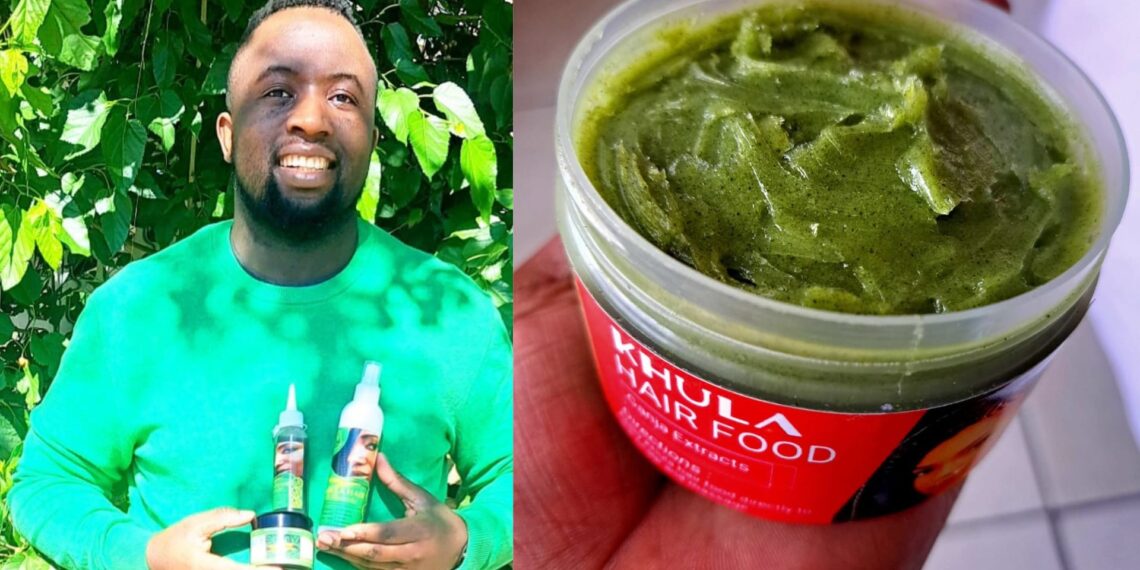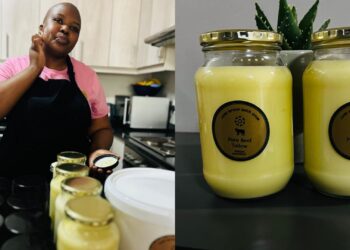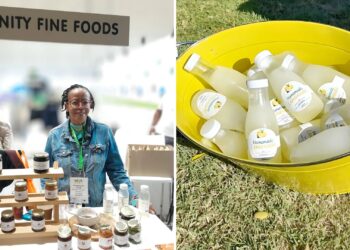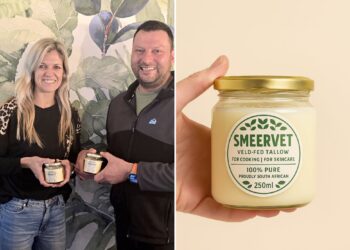Blessed is the community with a gogo who can simply walk to her garden and harvest a handful of herbs when someone falls sick. In Mdeni village, Qumbu, in the Eastern Cape, that legacy has been passed down to Simbongile James by his grandmother, taking shape in his promising business, Khula Hair Organics.
His business is in its crawling stages, bringing the love, knowledge, and care of generations into every product and every connection.
Khula Hair has a three-product range: Khula Organic Hair Food, a nourishing hair spray, and hair oil. James says the strength of these products lies in their ability to restore hairlines, clear dandruff, strengthen roots, and repair scalp damage caused by relaxers and other harsh chemicals.
He adds that they also help reduce breakage, boost growth and volume, slow down greying, and protect hair from everyday stressors such as dry air, dust, and heat.
All these benefits, James explains, come from a blend of natural ingredients like CBD oil, aloe, and tea leaf extracts.
“I already had small businesses on the side, but they too suffered during lockdowns. I therefore started Khula Hair Organics in 2021, a month after being retrenched.”
The idea was born after he lost his job with a UK-based logistics company during the Covid-19 pandemic.
Related stories
- Sisters turn struggles into well-oiled natural haircare brand
- From football to fine wine: Raise a glass to Sindile’s Sinbad wines
- Ngwenya’s sweet potato surprise: Turning harvest into innovation
From Gogo’s wisdom
Looking back, James says his ability to create and build comes from his family, especially his grandmother, Dorha James, affectionately known as MamNguni.
She grew plants like garlic, lavender, cloves, umhlonyane, and aloe, among others she used for treating different health challenges.
Life on their homestead kept the family strong, and they hardly ever got sick.
“MaMnguni used aloe and herbs like lavender to make hair treatments for herself and for us grandchildren so we could have strong, healthy hair,” James recalls.
“She was also very strict about hygiene, so we never had lice, scalp wounds, or dandruff.”
He remembers the 90s when lice were a common problem for children, but his grandmother’s wisdom outsmarted them. Her simple mixes of herbs became shampoos, treatments, and other remedies.
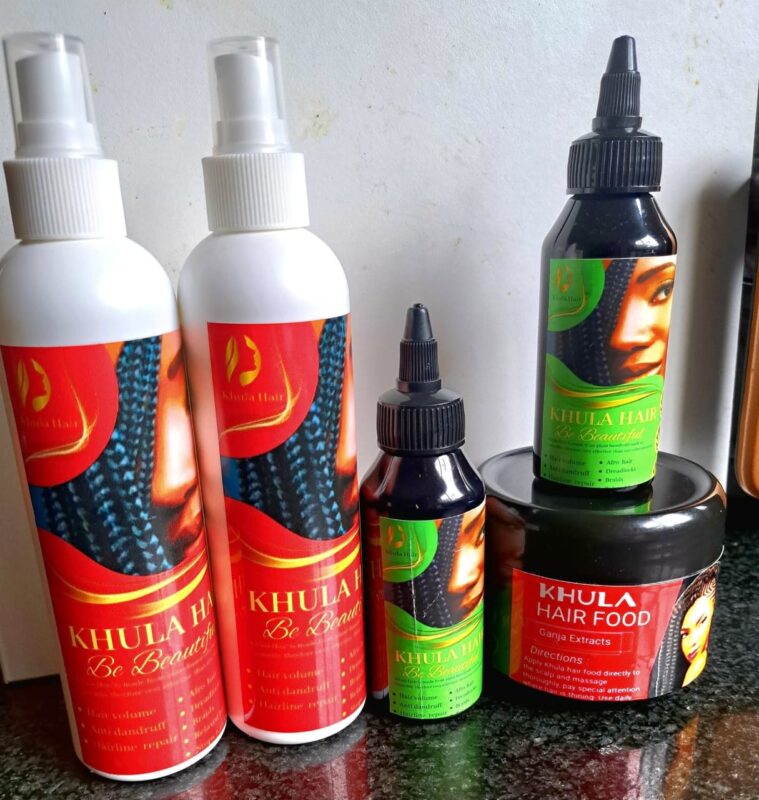
It is this knowledge and discipline that shaped James into who he is today, the founder of both a haircare line and a sneaker range.
Handmade crafts were also a part of MamNguni’s life. She wove reed mats, baskets, and other items that made her home well known in the community. These projects kept the grandchildren focused and well-grounded.
She was also known as a recycler, turning plastics into colourful bags, shoes, and decorative mats. “That’s where I first learned the art of shoe design and business,” James adds.
For the next generation
For now, Khula Hair Organics operates mainly online with no formal market space yet. James says his dream is much bigger: to create jobs and build a legacy, not just for himself and his children’s children, but for South Africa as a whole.
“Because my products use organic ingredients, it is easier for me to advise customers based on their hair problems,” he explains. Whether it is dandruff or hairline challenges, he combines research with his grandmother’s wisdom to offer suggestions that his clients have found effective.
James says chemical-based solutions often fix one problem while causing another, which damages the scalp in the long run.
“The scalp is a sensitive foundation for hair growth. Treating it with chemicals over and over is not sustainable.”
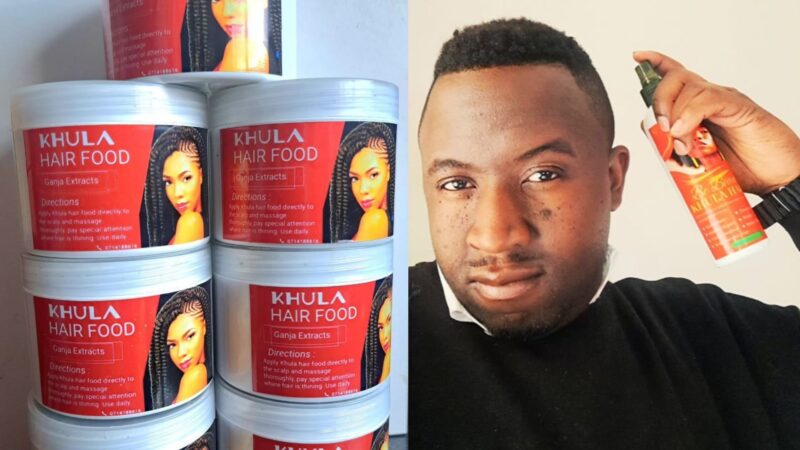
Since 2021, demand for Khula Hair Organics has been growing, but James has been funding operations out of his own pocket, which is a challenge, he says.
If the brand can grow with the right support, James believes it could employ many people while offering products that not only nourish hair but also restore dignity for those who truly value haircare.
He sees Khula Hair Organics not only as a local cosmetic brand but as a company with the potential to reach the world; an online business without borders.
James’ tips for future agripreneurs
- Don’t be afraid of competition.
- Trust in your product, know your value, and market with confidence.
- Protect your ideas, and
- Take time to research and make sure your product is safe before entering the market.
ALSO READ: Natural haircare rooted in power and pride



